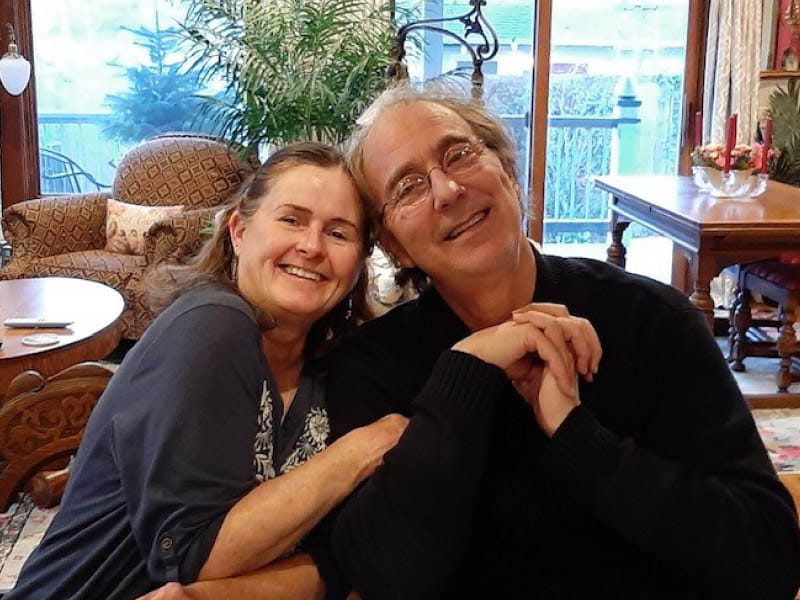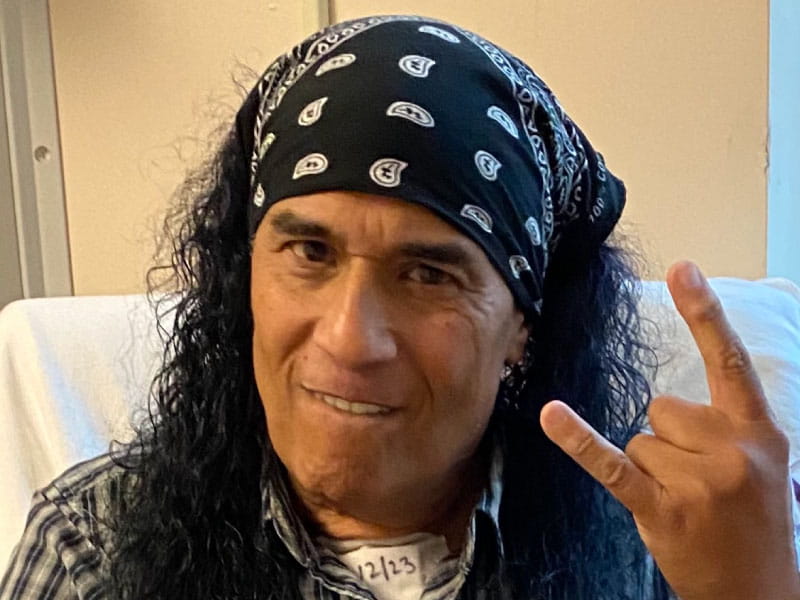Will and Kristin Flanary were fast asleep in their home in Portland, Oregon, when Kristin awoke to what sounded like Will snoring.
She nudged him. The sound continued. She shook his shoulder. He didn’t respond.
Kristin turned on the light. Will, her then-34-year-old husband, was gasping for air.
She shouted his name. No reaction.
She put her ear on his chest. No sound.
She lifted his right arm. It dropped to the bed.
Kristin felt both panicked and hyperfocused. She picked up the phone on her nightstand and called 911.
Following the dispatcher’s instructions, Kristin laced one hand on top of the other in the center of Will’s chest. She pushed hard and fast, feeling Will’s ribs move with each compression. The dispatcher counted to keep her in rhythm. As she was giving CPR, Kristin watched her husband turn blue, then purple.
While still pushing on Will’s chest, Kristin told the paramedics how to enter the house. She also asked them to close the door to the room next door to theirs – their daughters, 8 and 5 at the time, had managed to remain asleep so far.
Because this was May 2020 and COVID-19 restrictions were in place, paramedics wore full-body hazardous materials suits, with face shields that kept fogging up.
A paramedic told Kristin that ventricular fibrillation had caused Will to go into sudden cardiac arrest. She asked for an explanation.
During ventricular fibrillation, the lower heart chambers contract in a very rapid and uncoordinated manner. As a result, the heart doesn’t pump blood to the rest of the body.
The EMTs connected Will to an automated external defibrillator, or AED. The machine can help restore a heart’s normal rhythm.
Kristin couldn’t bear to watch. But she couldn’t escape the sound of Will’s body slamming to the floor with each attempt to restart his heart. It took five shocks to trigger a sustainable rhythm.
Will woke up in the intensive care unit the next day. Because of the pandemic, Kristin wasn’t allowed in the hospital. They spoke via video chat.
“You went into cardiac arrest,” she told him. “The paramedics shocked your heart until it started again.”
He was confused and scared, but also grateful.

Out-of-hospital cardiac arrest affects about 350,000 people in the United States each year. Only about 9% of those who experience these events survive.
Will not only survived, he had no physical or cognitive deficits.
As much as he beat the odds, he couldn’t help but also feel unlucky. This was his third serious medical event.
He was diagnosed with testicular cancer at 25 while in medical school studying to be an ophthalmologist. At the time, Kristin had just finished graduate school in cognitive neuroscience and social psychology, and their first daughter had just been born. The cancer was treated with surgery. Three years later, he was treated for another bout of the same type of cancer.
Now this.
Will made sense of it the best way he knew how – through comedy.
He’d done stand-up in college and later realized he could continue making people laugh online, mostly about all things medical. By 2020, he’d amassed 150,000 followers on Twitter and had even started to give keynote talks at medical conferences.
He shared on social media the news about his cardiac arrest. Then he kept posting, joking about insurance, bedside manner and more.
“I process everything through humor, even when it’s a serious situation,” he said.
Telling jokes also helped him put aside all the other scary thoughts going through his mind.
“I didn’t want to be away from my family,” he said. “I didn’t want to be alone.”
Doctors never found a cause for his cardiac arrest. To protect him from another episode, he received an implantable cardioverter defibrillator. The device can detect a life-threatening heartbeat and shock the heart back to a normal rhythm.
Once Will began to ease back into life, Kristin found herself hiding from it.
For about six months, she walked around like a zombie, filled with anxiety and unable to think clearly. Throughout this experience, as well as both cancer diagnoses, she felt overlooked and undervalued by Will’s doctors, nurses and other caregivers.
“I wasn’t the primary patient, but the event happened to me, too,” she said. “I was traumatized not only by the cardiac arrest, but by the way I was treated by medical professionals.”
In 2022, Will and Kristin decided to make a business of his comedy and her advocacy. As the Glaucomfleckens (it’s an ophthalmology term), they perform on several social media channels, do live stage shows and give keynote speeches. Their combined followers on Twitter (now X) have surged to nearly 800,000, with even more on YouTube and TikTok.
Kristin advocates for caregivers and co-survivors of medical trauma. She encourages doctors to care not only for the patient but also for their loved ones. Her advice is simple: Acknowledge them more, make direct eye contact, give clear medical explanations and ask how they’re feeling. Meanwhile, she also promotes CPR and AED awareness.

One of the couple’s live shows focuses on the impact that cardiac arrest can have on families and how it’s handled in the health care system.
“We try to keep it on the lighter side, with serious moments,” Will said.
The serious part includes an edited version of Kristin’s 911 call.
“Comedy and tragedy – that has been our story and what has shaped us,” Kristin said. “In the end, we want people to leave feeling hopeful and inspired to take action.”
Stories From the Heart chronicles the inspiring journeys of heart disease and stroke survivors, caregivers and advocates.
American Heart Association News Stories
American Heart Association News covers heart disease, stroke and related health issues. Not all views expressed in American Heart Association News stories reflect the official position of the American Heart Association. Statements, conclusions, accuracy and reliability of studies published in American Heart Association scientific journals or presented at American Heart Association scientific meetings are solely those of the study authors and do not necessarily reflect the American Heart Association’s official guidance, policies or positions.
Copyright is owned or held by the American Heart Association, Inc., and all rights are reserved. Permission is granted, at no cost and without need for further request, for individuals, media outlets, and non-commercial education and awareness efforts to link to, quote, excerpt from or reprint these stories in any medium as long as no text is altered and proper attribution is made to American Heart Association News.
Other uses, including educational products or services sold for profit, must comply with the American Heart Association’s Copyright Permission Guidelines. See full terms of use. These stories may not be used to promote or endorse a commercial product or service.
HEALTH CARE DISCLAIMER: This site and its services do not constitute the practice of medical advice, diagnosis or treatment. Always talk to your health care provider for diagnosis and treatment, including your specific medical needs. If you have or suspect that you have a medical problem or condition, please contact a qualified health care professional immediately. If you are in the United States and experiencing a medical emergency, call 911 or call for emergency medical help immediately.
Related Articles

The health connection between cardiac arrest survivors and their loved ones

Rocker’s wife performed CPR with the help of 911 dispatcher

